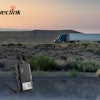Today, a growing number of food companies, particularly smaller foodservice distributors, are turning to leasing to avoid the burdens of handling maintenance themselves.
Many have chosen full-service leasing, which includes truck repair, preventive maintenance, emergency roadside assistance, insurance, permitting and licensing, fleet consulting, custom spec'd trucks, vehicle washing and custom painting.
Full-service leasing also includes safety programs, driver drug and alcohol testing, rental and replacement vehicles, fuel tax reporting and a fuel program that entitles trucking companies to discounts at affiliated fueling stations.
"Full-service leasing stabilized our fixed costs of running a fleet and minimizes our variable costs," says Michael Winburn, vice president of operations at Shetakis Wholesalers Inc., a foodservice distributor in Las Vegas. The company leases 13 Peterbilts--two 24-foot straight trucks, eight tractors with 36-foot trailers and three tractors with 28-foot trailers--from Preferred Truck Leasing, Las Vegas, one of about 180 PacLease franchises throughout North America.
Shetakis trucks product to 300 hotels and casinos, schools and institutional accounts, all within 90 miles of Las Vegas.
For Andrews Foodservice Systems, Pueblo, CO, leasing is an "insurance policy" against having a truck not running and missing a delivery as a result, says company president George Andrews. Leasing, and the maintenance and emergency road service that go with it, ensure that he will always have premium, late-model, well-maintained trucks available when customers need service.
Andrews' trucks average 100,000-120,000 miles a year delivering food and related products to schools, prisons, restaurants, diners and convenience stores in Colorado, Montana, Okla-homa, New Mexico, North Dakota, South Dakota, Wyoming and Nebraska. Its fleet is mostly Kenworth T800s and a couple of T300 tractors for city delivery. It leases its trucks through MHC Truck Leasing, Colorado Springs, CO, another PacLease franchise.
Preventive Maintenance For companies like Andrews and Shetakis, "the regular schedule of maintenance is a high priority," says Gene Scoggins, vice president of sales at Oakbrook Terrace, IL-based Nationa-Lease, which operates 550 truck leasing locations throughout the United States and Canada and offers maintenance and roadside assistance from 20,000 ap-proved vendors across North America.
Andrews and Shetakis are not unique in their moves toward leasing. Scoggins reports that in the last two years, his company has been doing "a lot more with food, especially leasing and fleet maintenance."
In fact, the Food Marketing Institute reported in its 2004 Food Industry Transportation and Fleet Maintenance Report that leasing among food companies is on the rise. In 2003, only 2 percent of companies used a leasing company for new equipment, while in 2004, that number rose to 5 percent.
And it's not just in food. Across all industries, an increasing number of companies are switching to full-service leases, according to the Truck Renting and Leasing Association (TRALA). In 2003, leasing saw 16 percent growth, and the trend is continuing, the association reported.
"I've been here for 31 years and I've never seen the market so active," says Richard Carson, vice president of fleet management solutions for Miami-based Ryder Systems Inc. "The leasing industry is booming any way you look at it. At Ryder, new [leasing] accounts are up 47 percent and gross [leasing] sales are up over 50 percent. Now through the end of 2006, we expect the market to stay very active."
In addition to the basic maintenance considerations, Carson says the continued constraint on truck capacity, a reluctance to commit vitally needed capital and long wait times to get new trucks are driving many companies that once only purchased equipment to explore renting and leasing options.
It Just Makes Sense "In any economic climate, it makes sense for fleets to lease their trucks," says Peter Vroom, TRALA's president. "In a bad economy, companies often lease to leverage tight capital. In a good economy, they want to look after their company's capital but also want to avoid the hassles of owning and operating their vehicles."
Those hassles are a thing of the past for Shetakis. Through the company's lease arrangement with Preferred, "I have to make only one phone call and Preferred says they will take care of what I need and they do it. Preferred twice a week inspects our trucks at our site and takes care of the needed maintenance. Every repair or maintenance, except for two, has been done at our facility, and those two were handled at Preferred," Winburn says. "We don't have to pay a driver overtime to shuttle a truck to a distant repair facility.
"If we call in a maintenance problem, it is taken care of by the next morning at our site by a night technician or a substitute truck is driven to us," he adds. "We never miss a beat with Preferred and PacLease.
If Shetakis hadn't chosen to lease its trucks, Winburn says he would have had to hire a transportation manager to handle maintenance, fuel tax reporting, daily vehicle inspection reports and more. "When I look at our head count, and for our size of operation, full-service leasing is the most effective way to go," he says.
As a company, Andrews was not always a firm believer in leasing. "Now we do both and it makes us more efficient and profitable," he says.














